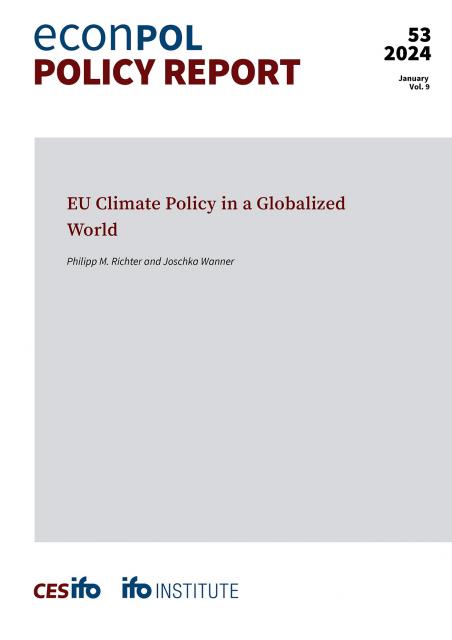EU Climate Policy in a Globalized World
In this EconPol Policy Report, we assess various options for EU climate policy utilizing a quantitative trade and environment model. We investigate the EU’s 2030 emission reduction target, evaluate the impact of the newly introduced Carbon Border Adjustment Mechanism (CBAM), and analyze different climate coalitions with the EU at their core, including the recently launched “G7-led Climate Club.” We thereby assess the impact on both national and global emissions accounting for carbon leakage, on international economic competitiveness and changes in the global market shares of the EU, as well as on aggregate income gains and losses.
Our findings indicate that EU climate policies do not impose substantial costs, have a limited impact on global emissions, but generate substantial gains from avoided climate damages. The only modest global emission reduction is primarily due to the EU’s relatively small share in global emissions and carbon leakage in response to its climate policy. Our analysis demonstrates that the CBAM reduces, but does not entirely eliminate, carbon leakage and helps prevent income losses for the EU. In contrast to the low average costs for the EU across all scenarios, we show that the costs of climate policy are disproportionately borne by resource-rich countries. Achieving significant global emission reductions will require a climate coalition. However, our findings suggest that relying solely on a “G7-led Climate Club” is insufficient for the necessary global emission reductions. This underscores the need to foster a comprehensive global coalition.
Philipp M. Richter and Joschka Wanner (2025), “EU Climate Policy in a Globalized World,” EconPol Policy Report 53 January 2025.
